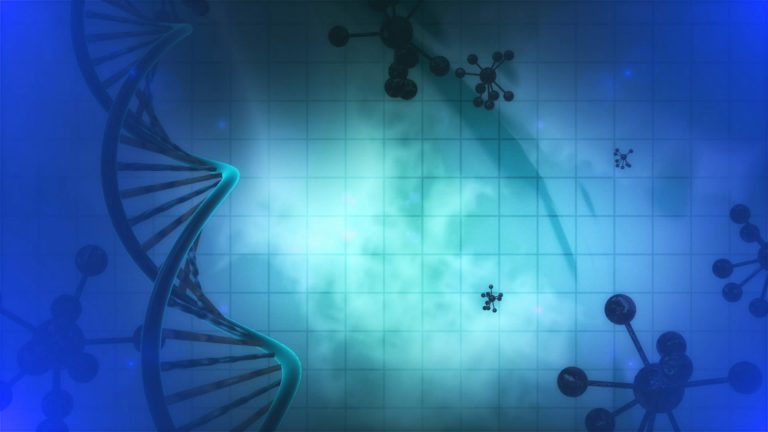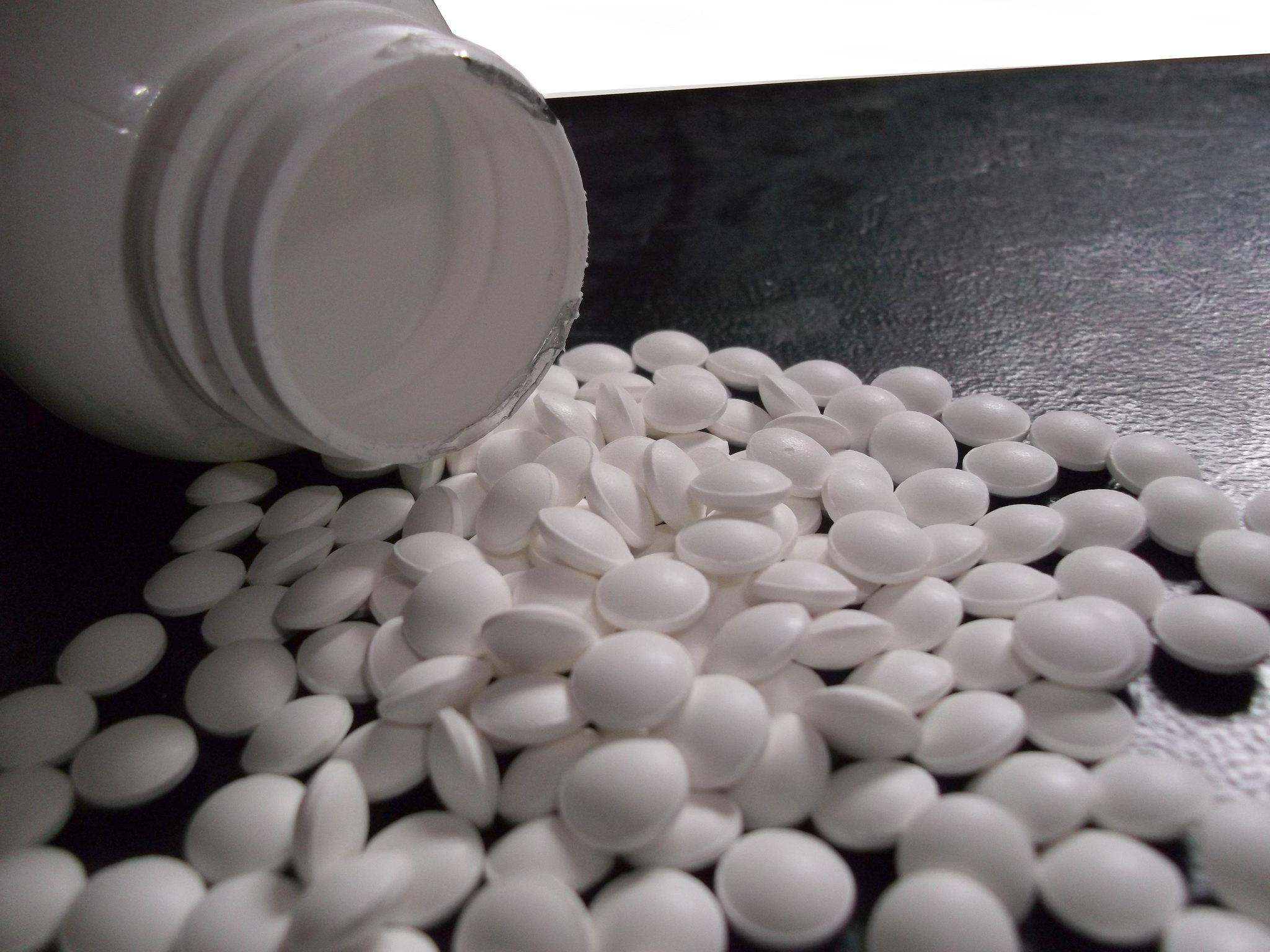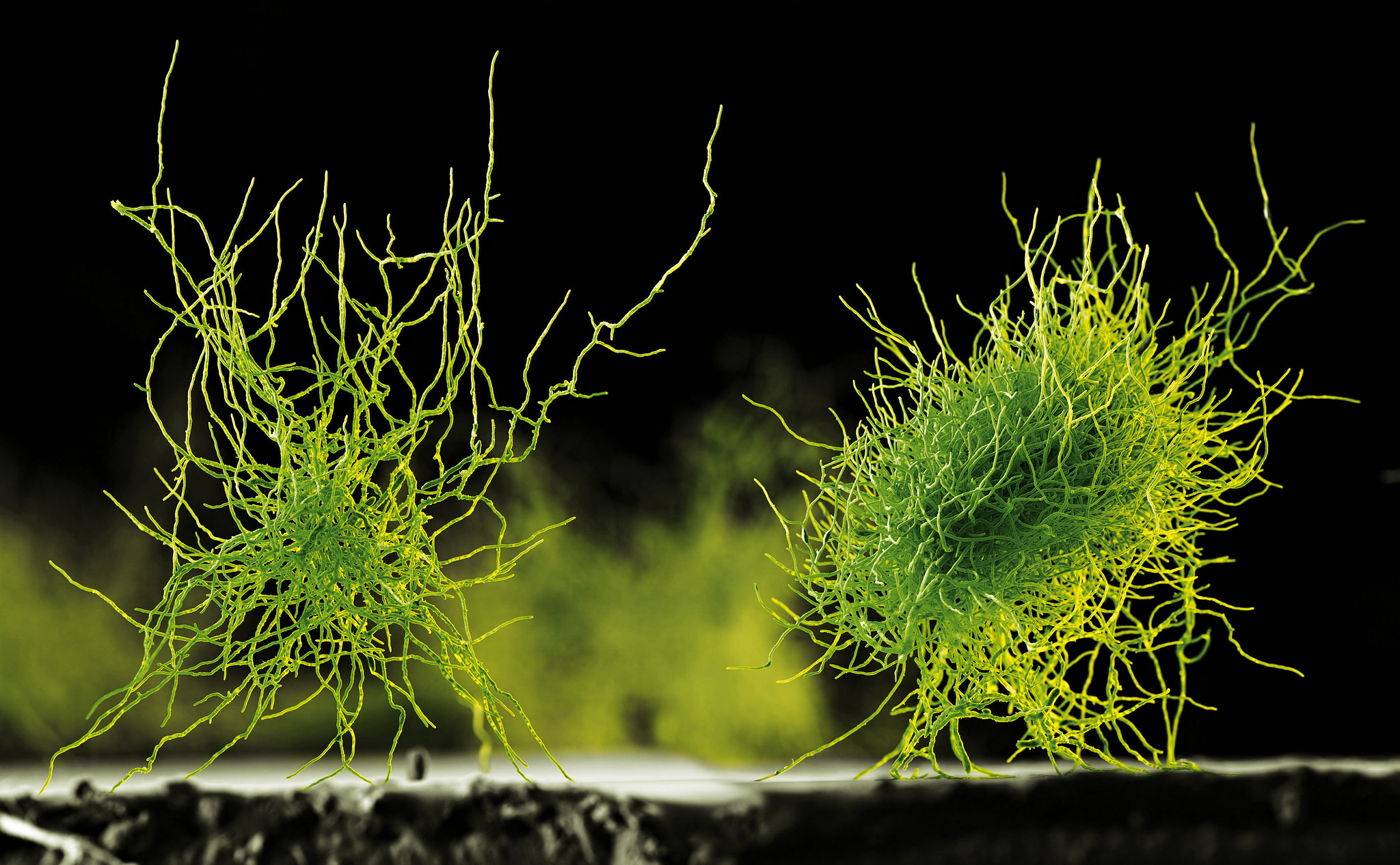News
Micro-organisms and industry : a very, very concentrated market
In the European Union, 137 “different entities” filed 768 applications for authorisation of micro-organisms to produce different molecules. 50 of these entities filed applications using genetically modified micro-organisms (GMMs) declared as such. Four companies (and their subsidiaries) submitted 64% of these applications: Novozymes, DSM, IFF and AB Enzymes.
They have bought and taken stakes in a large number of companies. As a result, they have conquered every continent and are present in every industrial sector. Beyond this concentration, which resembles that seen in the seed sector, what is striking and what we are going to show, is that these companies, through alliances and partnerships, collaborate and organise a de facto monopoly.

Four industrial groups dominate the market for genetically modified micro-organisms. Of the 272 applications filed that strictly concern GMMs, 173 (64%) are from :
– Novozymes (54 applications + 4 via its subsidiary Chr. Hansen) ;
– DSM (42 cases + 1 via Biomin GmbH + 1 via Avansya, a joint venture between DSM and Cargill) ;
– Danisco/IFF (40 cases + 1 via Dupont + 1 via Amyris + 2 via Finnfeeds Int’l) ;
– AB Enzymes (21 cases + 6 via Roal Oy) [1].
The above list relates exclusively to GMM dossiers but, of course, these companies have also filed dossiers for non-GM micro-organisms or micro-organisms of an unspecified nature. Here again, their subsidiaries are involved in these other dossiers. Novozymes has submitted a total of 76 dossiers, and DSM 73. Genencor, a subsidiary of Danisco (now IFF), has submitted 7 dossiers, the GMO (or non-GMO) origin of which is not specified. Similarly, Dupont Nutrition Bioscience has submitted three applications in the European Union (EU), only one of which is labelled GMO. These figures could be even higher, as several dossiers have been filed by specialist firms such as Intertek Scientific & Regulatory Consultancy (18 dossiers filed, three of which are clearly GMO and two clearly non-GMO).
Novozymes, the undisputed leader
The undisputed leader in micro-organisms is the Danish company Novozymes. Created in 2000, it was spun off from the pharmaceutical company Novo Nordisk, whose flagship product is insulin derived from MGM [2]. Together under Novo Holding, they are the world’s leading enzyme producer [3].
Novozymes has acquired or taken major stakes in a number of companies. Thanks to its acquisitions, alliances and partnerships, it can offer molecules derived from micro-organisms (whether genetically modified or not) for all industrial sectors : household cleaning and maintenance products, food and feed, human health, energy, waste water treatment, textile, leather, pulp and paper industries, etc. Its already hegemonic position will be strengthened by the recent takeover of Chr. Hansen (9 dossiers, including 4 GMOs), another Danish company also present on most micro-organism markets. The merger was approved by the European Commission on 12 December 2023. To obtain this green light, they agreed to « sell off part of the combined company’s worldwide lactase enzyme business, claiming that a buyer had already been found » [4]. Indeed, « the Commission’s investigation showed that the merger, as initially notified, would have reduced competition in the market for the manufacture of a specific enzyme, lactase, using genetic modification technology » [5]. Chr. Hansen develops enzymes for food and feed, « biocontrol solutions », probiotics and other molecules for human and animal health.
Novozymes is present on the probiotics market following the acquisition of Synergia Life Sciences Pte. Ltd [6] or Microbiome Labs [7]. This presence increased in 2015, when it joined forces with Adisseo (9 files, including 2 GMMs) to produce probiotics for animal feed [8]. Adisseo is part of the Chinese SinoChem Group, which bought ChemChina, a company that had previously absorbed Syngenta (1 MGM file).
Novozymes has invested in the biocontrol market. In 2013, it formed an alliance with Monsanto (AgBio Alliance) to develop and distribute micro-organisms for use in agriculture [9] [10]. Monsanto paid the Danish company €218 million. With the takeover of Monsanto by Bayer, this alliance continued, but was extended to other companies, such as Univar Solutions [11] or UPL [12]. Novozymes also has a partnership for « biocontrol solutions » with Syngenta.
In the food sector, Novozymes and Puratos formed an alliance in 2006. Puratos has filed 7 applications for GMMs in the EU, and one of its subsidiaries, Beldem, has filed 2. Puratos is a company mainly invested in sourdoughs for bakery and snack products [13]. This alliance began with the launch of a « cake improver » called Acti-Fresh : a product designed to make cakes more « fresh, moist and soft » [14]. This product uses an enzyme (amylase) from Novozymes. In 2020, Novozymes also teamed up with Swiss company Firmenich [15]. Together, they are marketing a « natural sugar reduction solution TasteGEM® SWL with Saphera® lactase » in order, the press release points out, « to reduce the sugar content of yoghurts and other dairy products by up to 50% without using sweeteners ».
Finally, in 2021, Novozymes and DSM created « The DSM-Novozymes Feed Enzymes Alliance » [16]. As part of this, in 2021 the two companies announced the marketing of ProAct 360, a protease-based « feed solution » for the poultry industry [17]. In 2022, they launched another product, a phytase, sold under the trade name HiPhorius [18]. Other enzymes followed, such as a xynalase and an amylase.
DSM, the challenger ?
DSM (73 dossiers, including 42 for GMMs) is the second largest company in terms of GMM dossiers filed in the EU. This company is a leader in enzyme production. Since the late 90s, it has been acquiring companies specializing in this field, and even more broadly in the agri-food and health sectors. In 1998, for example, DSM bought Gist-brocades for 8.5 billion francs (1.8 billion euros), thus entering the world of biotechnology [19]. Gist-brocades had previously developed a phytase enzyme for pig and poultry feed. In 1995, Gist-brocades sold its North American bakery enzyme activities to Lallemand Boulangerie and its industrial enzyme division to Genencor (now part of IFF).
| Buyout year | Buyout company | Industrial sector | Buyout amount | |
| 2003 | Vitamin division of Roche (Switzerland) | Vitamin | ||
| 2011 | Martek Bioscience (United States) | Nutritional products, notably derived from algae | $1.1 billion [20] | |
| 2011 | Vitane (Spain) | Carotenoids from mushroom fermentation [21] | ||
| 2012 | Verenium (Cargill’s enzyme division) (United States) | Enzyme so those needed for oilseed processing | $37 million [22]. This purchase enabled DSM to resume partnership agreements with the Bunge, Alfa Laval and Desmet Ballestra groups. | |
| 2012 | Fortitech (United States) | Nutrition (colorant, edulcorant, protein,etc.) | 634 million dollars [23] | |
| 2012 | Ocean Nutrition Canada (Canada) | Omega 3 and other fish-derived oils | $530 million [24] | |
| 2013 | Unitech | |||
| 2013 | Andre Pectin (China) | texture ingredients [25] | ||
| 2013 | Tortuga (Brazil) | Animal Nutrition | $576 Million [26] | |
| 2015 | Aland (China) | Vitamin C [27] | ||
| 2015 | Jiangshan (China) | Vitamin C | ||
| 2020 | Biomin et Romer Labs (Erber Group) (Allemagne) | Gstion des risques liés aux mycotoxines, tests allergènes, etc. | 980 millions de dollars [28] | |
| 2020 | Glycom (Danemark) | Production d’une enzyme issue du lait maternel humain | 765 millions de dollars [29] | |
| 2021 | Division Flavor & Fragrance de Amyris (Etats-Unis) |
DSM has also acquired pharmaceutical and resin companies. DSM has also set up various joint ventures, such as in 2011 with the Chinese Sinochem Group (DSM Sinochem Pharmaceuticals) or with Cargill (Avansya).
In May 2023, DSM and Firmenich (which we have already crossed with Novozymes) will merge to create the DSM-Firmenich group. Together, they hold some 16,000 patents [30]. Fimenich is a market leader in flavors and fragrances. This merger is therefore also the merger of two industrial sectors. Firmenich had begun to take an interest in food additives in the 2020s [31]. This merger with DSM will bring it significant patents, skills and markets. But the same idea was to be found in the merger between Dupont and IFF…
From Danisco to IFF, a series of takeovers
The third-largest company in terms of filings in the EU database, Danisco, another Danish company, no longer exists as such. Here again, the last 20 years have been marked by takeovers and mergers. In 2005, Danisco bought Genencor for $419 million [32] and FinFeeds (Finland). It invests heavily in several companies, including TMI Europe (France) [33] and Protos (Germany) [34]. In 2011, Danisco is acquired by Dupont for $6.3 billion [35]. In 2019, Swiss company IFF (International Flavors and Fragrances) and Dupont’s Nutrition & Biosciences” business will merge [36].
[37]. Danisco is now part of the multinational IFF. For a long time, IFF specialized in fragrances and food flavors. But the acceleration of the enzymes and additives market, and the strong concentration and competition in this market, prompted IFF to take an interest in this flourishing sector.
Enzymes, an important sector for major food companies
Two companies that have filed dossiers in the EU are subsidiaries of large agri-food groups : AB Enzymes and Kerry Bioscience.
AB Enzymes (28 dossiers, including 21 for GMMs) is a member of the ABF Ingredients division, itself a subsidiary of the British Association British Food group (which owns the Twinnings, Primark, Jordan’s, La tisanière and Ovomaltine brands) [38]. This division comprises several companies that share the market for enzymes and other molecules (ABBiotek, AB Enzymes, Abitec, Fytexia, PGP International, SPI Pharma, Ohly), including yeast to produce « vegan meat » [39]). Together with Anora, AB Enzymes acquired the Finnish company Roal Oy (6 MGM files). Roal Oy had itself been set up in 1991 as a joint venture between Finland’s Alko Ltd and Germany’s Röhm GmbH, two companies heavily involved in enzyme research and production. Röhm was subsequently acquired by Evonik (1 non-GMO file).
Kerry Bioscience (17 dossiers, including 7 GMMs) is a subsidiary of the Irish multinational Kerry Group. Among its many subsidiaries [40], two, purchased in 2022 for around €200 million [41], have filed dossiers for micro-organisms : c-LEcta GmbH (Germany, 2 MGM dossiers) and Enmex (Mexico, 2 dossiers) [42]. In 2011, Kerry Group had already bought Cargill’s « aroma » division for $230 million [43].
In a never-ending chase, companies have little room for maneuver : if they don’t want to be absorbed, they have to get bigger and therefore absorb their competitor.
[1] AB Enzymes is co-owner of Roal Oy with Anora.
[2] Novo Nordisk, « Gene technology in medicine development and production », December 2015
[3] Several people still hold important positions in both companies, such as Lars Green, who is CFO and Executive Vice President of Novozymes, and Senior Vice President of Finance and Operations at Novo Nordisk, Inc. See
« The Barons of the Stock Market – Biography of Lars Green », Zone Bourse, 2023.
[4] ” La Commission européenne autorise la fusion entre Novozymes et Chr. Hansen », Zone Bourse, 12 December 2023.
[5] European Commission, Press release – « Commission clears Novozymes and Chr. Hansen merger, subject to conditions », 12 December 2023.
[6] Novozymes, « Venturing further into BioHealth with Synergia ».
[7] Daniells, S., « Novozymes acquires US-based Microbiome Labs for US$125 million », NutralIngredients-USA.com, 6 January 2021
[8] Adisseo, Press release – « Novozymes-Adisseo Gear up for Significant Role in Probiotic Market », 16 June 2015.
[9] « Le géant de l’agrochimie Monsanto se lance dans le biocontrôle », AFP, 11 December 2013.
[10] Hopkins, M., « The BioAg Alliance Advances New Microbial Solutions For Agriculture », CropLife, 5 January 2017.
[11] Univar Solutions also develops enzymes for food and feed, and is also the exclusive distributor of enzymes and probiotics developed by Novozymes, particularly in the United States and Canada, DSM-Firmenich’s « beauty » products, particularly for Latin America, and certain BASF products.
Univar Solutions, « Our history ».
« UNIVAR SOLUTIONS INC. », Stock exchange area.
List of Univar Solutions Inc. subsidiaries : « UNIVAR SOLUTIONS INC. SUBSIDIARIES », 31 December 2019
[12] UPL is a group of Indian origin. Since 2006, it has notably owned the seed company Advanta Seed. See :
Lucas, S. C., « UPL Aquires Advanta Seed », AgriBusiness Global, 21 February 2006.
« Novozymes Continues BioAg Partnership with Bayer, Establishes Multi-Partner Model », CropLife, 4 April 2019.
« UPL subsidiary Advanta Seeds acquires 20% stake in Brazil-based seed company », Zone Bourse, 17 November 2022
[13] Floquet, K., « Puratos surfeits on the growing sourdough market », La Dépêche, November 8, 2022.
[14] Launois, A., « Puratos and Novozymes focus on cake freshness », Backerty and Snacks, April 7 2008.
[15] Firmenich, Press release – « Firmenich & Novozymes partner for great-tasting yogurt with unprecedented sugar reduction performance », October 7, 2020.
[17] DSM, Press Release – « dsm-firmenich-Novozymes Alliance launches its second-generation protease, ProAct 360™ », June 7, 2021.
[18] DSM, Press Release – « dsm-firmenich-Novozymes Alliance launches its new generation phytase, HiPhorius™ »], January 25, 2022.
[19] « DSM acquires Gist-Brocades for more than 8.5 billion francs », Les Echos, February 24 1998
[20] Yakowicz, W., « With A $120 Million War Chest, Brightseed Is Unlocking The Fat-Fighting Power Of Hemp », Forbes
[21] « DSM completes acquisition of Vitatene S.A.U. », All About Feed, May 7, 2011.
[22] « Verenium sells assets to DSM for $37m », L’Usine Nouvelle, April 2, 2012.
[23] Latieule, S., « DSM finalizes acquisition of Fortitech », L’Usine Nouvelle, December 27, 2012.
[24] Matt Steinglass, « DSM to acquire Canadian nutrition group », Financial Times, May 18, 2012.
[25] « DSM Closes Acquisition Of Andre Pectin’s Stake – Quick Facts », RTT News, October 9, 2013.
[26] Noël, A., « DSM Buys Animal-Nutrition Supplier Tortuga for $576 Million », Bloomberg, August 8, 2012.
[27] Byrne, J. « Vitamin C supply : Aland deal won’t change DSM’s global ranking », Feed Navigator, July 11, 2014.
[28] DSM, Communiqué de presse – « DSM to add world-leading animal nutrition and health specialty businesses with acquisition of Erber Group », 12 juin 2020.
[29] DSM, Communiqué de presse – « DSM completes acquisition of Glycom », 1er avril 2020.
[30] DSM-Firmenich, « Remuneration @dsm-firmenich », June 29, 2023
[31] Anna Rousseau, « Firmenich, ce géant suisse inconnu qui parfume le monde », Les Echos, February 15, 2021.
[32] « Danisco acquires Genencor for $419 million », Food ingredients first, January 27 2005.
[33] [This company has developed an « anti-microbial system » based on the enzyme lactoperoxidase.
« Danisco see future in French biotech company », Food ingredients first, March 22 2005
[34] Lindsey Partos , « Danisco invests in diagnostic tools to fight food contamination », Food Navigator, August 24 2005
[35] DuPont, Press Release – « DuPont to Acquire Danisco for $6.3 Billion », January 9, 2011.
[36] « DUPONT NUTRITION BIOSCIENCES APS », Import Info
[37] IFF, « Our subsidiaries ».
[38] It is also a member of the Board of Directors of the third largest paint company, AkzoNobel. In 2008, AkzoNobel acquired Imperial Chemical Industries (ICI). In 1993, ICI spun off its « bioscience » division, which became Zeneca, which merged with Astra to become Astra-Zeneca. Astra Zeneca merged with Novartis to create Syngenta in 2000.
Government of Great Britain, « AB WORLD FOODS (HOLDINGS) LIMITED »
[40] List of subsidiaries in 2022 :
Kerry Group, « Annual report 2022 », page 249.
[41] « Kerry Invests €200 Million in Biotechnology Companies », Neutraceuticals World, February 15, 2022.
[42] « Kerry acquires C-LEcta a », FoodIngredientsFirst, February 15, 2022.
[43] Kerry group, « Kerry Group completes acquisition of Cargill Flavor Systems », Newfoodmagazine, December 2, 2011.













